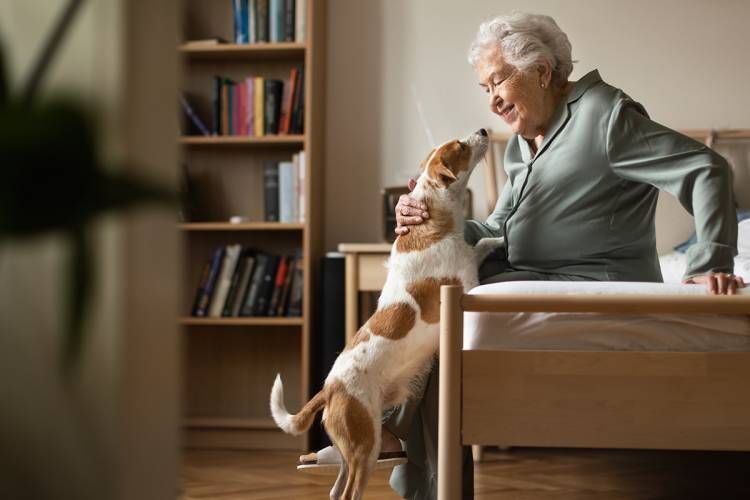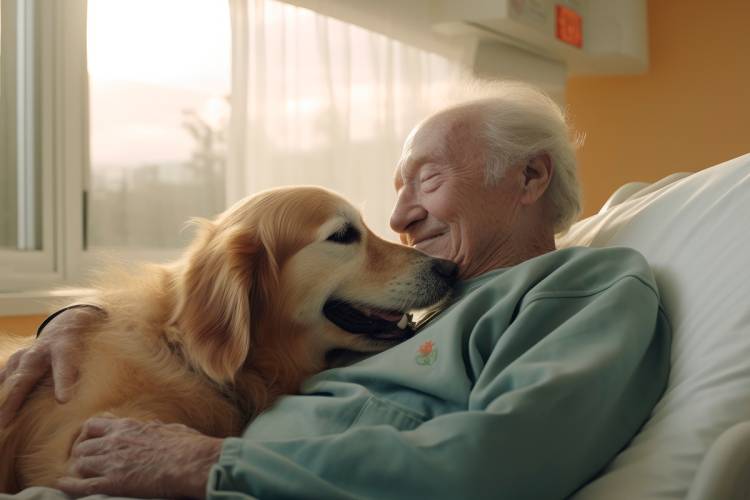Benefits of dogs for elderly people
Companionship, exercise, and stress reduction: discover the benefits of owning a dog for elderly people.
pets
Share

The 'golden' age is a sweet moment in the lives of people that we must learn to experience, savouring every moment and enjoying free time and the company of our family and friends. Yet sometimes this period can be marked by loneliness, a sedentary lifestyle or even sadness. However, joy can reach the homes of the elderly from the paw of a dog, a faithful friend who can improve our quality of life with their presence.
What do dogs bring to older people?
- Company: either because the elderly person lives alone or because their relatives must go to work or fulfil their obligations; a dog can relieve the feeling of loneliness and bring joyand tranquillity to their life.
- Stress reduction: as dogs are animals that interact a lot with humans and can even feel our emotions, another benefit of their presence is the reduction of stress and a sense of being safe and protected.
- Daily exercise and self-esteem: the need to take them for a walk forces the elderly person to move, which brings well-being, agility, good health and, most importantly, improves their social life, their self-esteem and the feeling of being valuable to others.

Best dogs for elderly people
There are no ideal dogs for the elderly, but the right dog for each individual and their circumstance. It's true that some dog breeds, such as Labradors or Golden Retrievers, are good-natured and calm and love to take care of others; but when choosing the most appropriate pet, other factors must be analysed:
- A middle-aged dog is best. A young puppy or dog will have too much energy, and a very old dog requires rest and its own care as a senior.
- A small size dog will always be more manageable for an older person, and you can even take it in your arms or put it on the sofa to feel its contact and companionship.
- It should have a calm nature so that it also feels comfortable with the tranquillity of the elderly person.
- Be sociable with other people and dogs, so that walks are safe and trouble-free.
- It's important that it's a dog that has received basic dog training, such as not pulling on the lead during walks and sitting down to wait when the person stops to talk or sit on a bench to rest.






